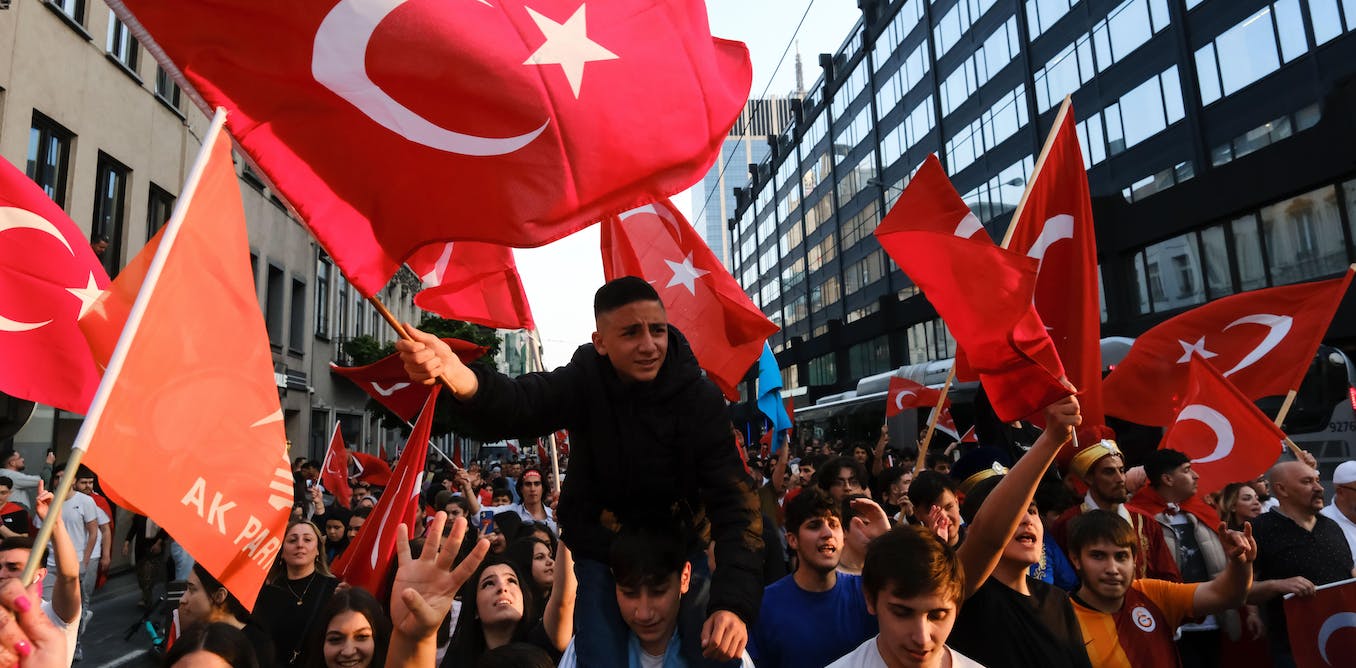After a bitter and hard-fought campaign that went to a second run-off vote, Recep Tayyip Erdoğan has retained the Turkish presidency in an election that some deemed as “free but not fair”. Having first won power in 2003, Erdoğan has been able to extend his rule for a further five years by creating an alliance with ultranationalist parties.
A key aspect of the next term is likely to be a hardline conservative agenda. An agreement between the Erdoğan’s Justice and Development Party (AKP) and his hardline Islamist New Welfare party (YRP) allies has pledged to reevaluate existing laws to “protect the integrity of the family”.
Turkey’s LGBTQ+ community is likely to be a target. Erdoğan and his allies ramped up anti-LGBTQ+ rhetoric during the election campaign. This is by no means a new part of Erdoğan’s programme, but it has intensified in the last few months. For instance, the AKP and coalition partner the YRP signed a declaration which suggested potential discrimination against the LGBTQ+ community could follow. The YRP has previously called for the closure of LGBTQ+ organisations.
Immediately after his victory was announced, Erdoğan accused the opposition of promoting LGBTQ+ rights while stressing that “LGBT forces” had not been able to infiltrate the AKP.
Women’s rights are also at risk. The 6284 law, which aims to protect women, particularly from domestic violence, was introduced by the AKP government in 2012. Both radical Islamist parties within Erdoğan’s coalition – YRP and Huda Par – have called for it to be repealed and made their support for Erdoğan conditional on a pledge to amend this law.
This comes against a backdrop of high levels of violence against women in Turkey. In 2022 at least 116 women were murdered by their partners.
Huda Par has also proposed criminalising extra-marital sex and adultery, getting rid of alimony rights for women and argued for single-sex education.
The Erdoğan-led majority in parliament was propped up by another of AKP’s coalition partners, the ultranationalist Nationalist Movement party (MHP). And they also received backing from the extreme nationalist presidential candidate, Sinan Oğan of the ATA (Ancestral) Alliance party, who won around 5% of the vote in the first round, before declaring his support for Erdoğan.
When it became clear that anti-immigrant views had been popular in the first round, opposition leader Kemal Kılıçdaroğlu pivoted to a hardline anti-immigration stance in the second round. Billboards promised Syrian refugees would have to leave the country, if he was elected.
Rising anti-Syrian rhetoric
The whole campaign was marked by rising hostility against the 3.6 million Syrian refugees living in Turkey. Syrians have already been targeted by violent protests that damaged Syrian-owned properties, as well as physical attacks and murders. Just before the second round, the killing of a 28-year old Syrian man living in Turkey raised fears about what might happen next.
It seems unlikely that such incidents – and the near constant hate speech that Syrians are subjected to – will decrease after this election result, especially now that Erdogan is so dependent on the ultranationalists in parliament. The pressure from these parties may cause the regime to target Syrians even more directly. Even before the election Erdoğan vowed “to repatriate refugees” and talked about “resettling” one million Syrian refugees.
Ultranationalists grasp power
The increased power of the ultranationalist right and their rhetoric and ideas is also a threat to Turkey’s Kurdish minority. Kurds have already experienced an increase in repression since Erdoğan adopted a more nationalistic and anti-minority policy direction in 2015. The 2023 election campaign saw him ramp up the nationalist rhetoric further.
He portrayed jailed Kurdish leader Selahattin Demirtas as “a terrorist” and the pro-Kurdish People’s Democratic party (HDP) as a front for the outlawed PKK paramilitary group. Erdoğan returned to his attack on Demirtas in his election victory speech while the crowd chanted for the death penalty.
We should expect to see an increase in anti-Kurdish policies. This could include further crackdowns on Kurdish organisations, in particular the possible closure of the HDP.
With an ongoing economic crisis threatening the livelihoods of many Turks and prices rising dramatically, Erdoğan may hope a wave of nationalism could distract his citizens from their financial troubles. With inflation running at around 40% and the lira having lost a fifth of its value over the past 12 months, there’s definitely a lot of distraction going to be needed.


